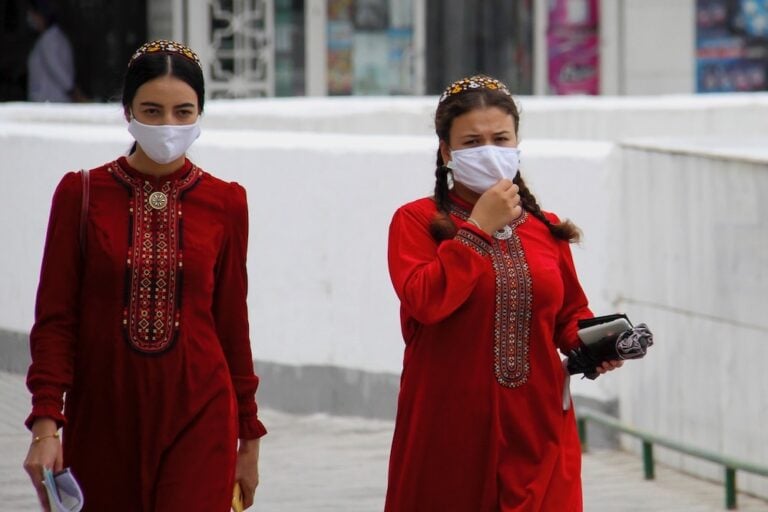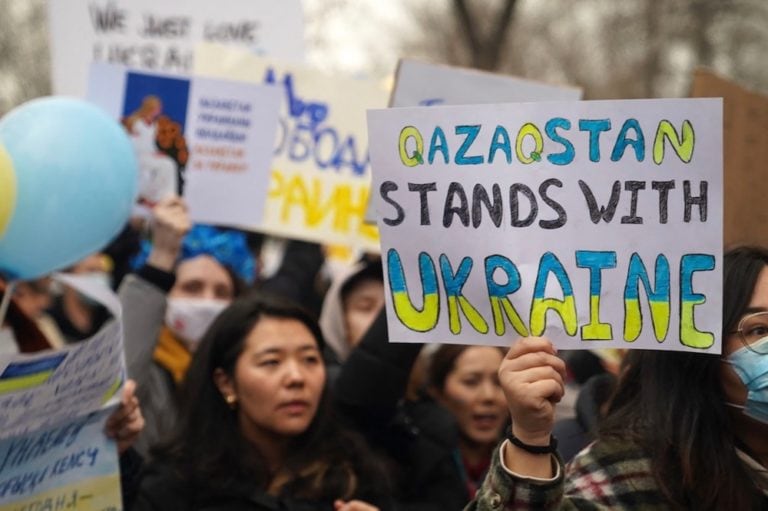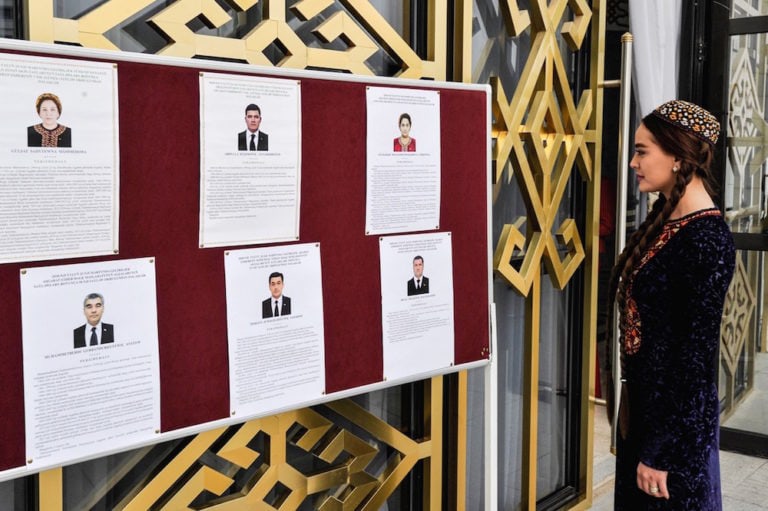The Turkmen president's visit is a key opportunity to urge improvements on human rights, said Human Rights Watch, RSF and other human rights organisations.
(Human Rights Watch/RSF/IFEX) – Paris – January 28, 2010 – President Nicolas Sarkozy should use the upcoming state visit by his Turkmen counterpart to speak out about Turkmenistan’s abysmal human rights record and to press for concrete improvements, the French League for Human Rights, Human Rights Watch, International Federation for Human Rights, and Reporters Without Borders said today. President Gurbanguly Berdymukhamedov is scheduled to begin a three-day visit to France on February 1, 2010.
Turkmenistan is one of the most repressive countries in the world. Unknown numbers of political prisoners languish in its prisons, and the rights to freedom of expression, association, assembly, movement, and religion are subject to draconian restrictions. Independent civil society and media cannot operate openly, if at all. The government threatens, harasses, and arrests those who question its policies, however modestly.
“Hosting Turkmenistan’s president comes with a duty to speak out about abuses there, and to press for concrete improvements,” said Veronika Szente Goldston, advocacy director for Europe and Central Asia at Human Rights Watch. “President Sarkozy needs to send a clear message that respect for human rights is at the core of France’s engagement with Turkmenistan.”
Turkmenistan remains closed to independent human rights monitors, including Human Rights Watch and International Federation for Human Rights. In September 2008, the UN special rapporteur on freedom of religion became the first UN special rapporteur to visit the country, but the government has refused to grant invitations to nine other UN monitors despite their longstanding requests for access.
Turkmenistan is rich in natural gas, and is considered an important strategic partner by many governments, including France. A number of French businesses have pursued investment opportunities in Turkmenistan, including most notably the conglomerate Bouygues, and business talks are expected to be a dominant part of the agenda.
The visit comes at a time when the French parliament is considering ratification of a major EU accord with Turkmenistan. The accord – the Partnership and Cooperation Agreement – would significantly upgrade relations between the EU and Turkmenistan. It has been frozen for years over human rights concerns, but a renewed push to move forward with it is currently under way. The agreement requires ratification by the national parliaments of EU member states, and France and the United Kingdom are the only remaining holdouts.
“French parliamentarians have a key opportunity to ensure that upgraded relations with Turkmenistan are linked to concrete human rights improvements,” said Jean-Pierre Dubois, president of the French League for Human Rights.
The agreement contains a clause committing both parties to respect human rights and providing for possible suspension if either party violates this principle. “Given the appalling state of human rights in Turkmenistan, no sooner would the EU have concluded the agreement than it would be compelled to initiate proceedings to suspend it,” said Jean-François Julliard, secretary general of Reporters Without Borders. “European governments have squandered precious time and leverage by turning a blind eye to Turkmenistan’s human rights problems and proceeding with the agreement despite this absurd situation. This needs to change.”
The French League for Human Rights, Human Rights Watch, International Federation for Human Rights, and Reporters Without Borders called on France and other European governments to recognize that Turkmenistan’s rights record is at odds with the agreement’s human rights clause. They should clearly articulate the specific human rights improvements Turkmenistan needs to make in exchange for enhanced relations, and engage proactively before the agreement is concluded to help secure them.
“The EU’s stance to date on human rights in Turkmenistan has been disappointingly weak, but France now has a great chance to rectify this,” said Souhayr Belhassen, president of International Federation for Human Rights.
The French League for Human Rights, Human Rights Watch, International Federation for Human Rights, and Reporters Without Borders called on France and other European governments to press the Turkmen leader to take the following specific steps:
– Free all those imprisoned for political reasons, including the human rights activists Annakurban Amanklychev and Sapardurdy Khajiev and the dissident Gulgeldy Annaniazov;
– Establish a nationwide, transparent process to review all cases of political imprisonment to establish the real number of prisoners held on politically motivated charges, and ensure that victims of abuse are provided redress;
– Lift travel bans on students, activists, and relatives of opposition members, and dismantle the system that allows for interference with citizens’ ability to leave and return to Turkmenistan;
– Allow activists, civic groups, and journalists to operate freely and without fear of persecution;
– Ensure access to the country, including to places of detention, for independent human rights monitors and extend invitations to all United Nations monitors who have requested access.
French League for Human Rights
International Federation for Human Rights


